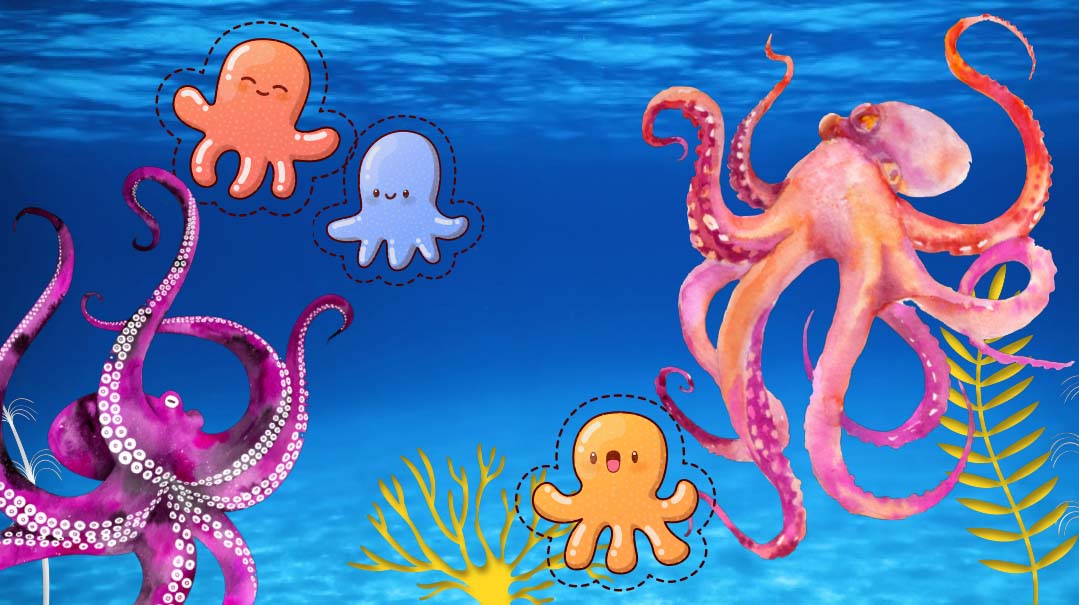Octopus Escapades

True adventures from the lives of cephalopods

Octopuses are smart. Very smart. They’re also slippery, strong, curious, capable of crazy camouflage and lightning-fast appearance changes, and they’re extremely flexible. And yet we still find these cephalopods (seh-fa-low-pawds, a category of marine creature) to be very surprising. True adventures from the lives of cephalopods
Inky’s Great Escape
Inky was a common New Zealand octopus who was living at New Zealand’s National Aquarium… until he broke out of his tank one night by pushing the lid off. He slipped down a 6-inch-wide drainpipe and made an eight-armed escape back into the ocean. Aquarium staff noticed his disappearance right away and were able to figure out where he went by following a wet trail he’d left. That was about five years ago, and he hasn’t been seen since. His escape made headlines around the world, and his story continues to fascinate people.
“He was very inquisitive and liked to push boundaries,” said Rob Yarrell, the manager of Inky’s former aquarium.
Inky had been donated to the aquarium by fishermen who caught him the year before. And he was dearly loved by visitors and staff because he seemed so inquisitive and also so engaging. People weren’t shocked by Inky’s escape and disappearance — it seemed to fit his nature. “We hope he does well in his new life,” Yarrell said.
Sid was another smart New Zealand octopus. And, like Inky, he had made some pretty brilliant escapes. Unlike Inky, he didn’t make it back to the ocean on his own. Each time, he was found and put back in his tank. Once, he even hid in a drain for five days before trying to escape again. An aquarium spokesman said, “He was one of the octopus[es] that escaped every moment he got. We had to tie the doors shut to keep him in. He could fit through a gap about two inches wide.” Eventually, employees at the aquarium got the hint — and they released him back into the wild.
Practically speaking, how did Inky and Sid do it? How did they figure out how to get out and where to go? And how did they know to do it in the middle of the night when no one would be around?
James Wood, a marine biologist and octopus expert, said octopuses are “active, curious, and they engage with their environments.” He said they’re fast learners and will quickly figure out where food is coming from in an aquarium, noticing other details, too. They’re able to process information, make quick decisions, and even form mental maps pinpointing the exact location of their dens on the ocean floor. They’re super strong and can manipulate (i.e., move around or play with) almost anything.
Because octopuses have soft, flexible bodies and no bones, they can squeeze through tiny spaces and openings. Believe it or not, a 600-pound octopus (about half the weight of a grizzly bear!) can squeeze and shift its body to fit through a space the size of a quarter. Octopuses are also used to moving around quite a bit in the ocean, looking for food and shelter, so it makes sense that they would want to leave their aquarium tank and explore.
Octopuses are extremely unusual for invertebrates (animals without spines), and for animals that live such a short time (usually only around a year or two). They’re smarter than many mammals, can recognize individual faces (even when people are dressed exactly alike), develop their own unique personalities, and, of course, make brilliant escapes. In fact, they have the largest, most complex brains of any invertebrate.
Oops! We could not locate your form.






